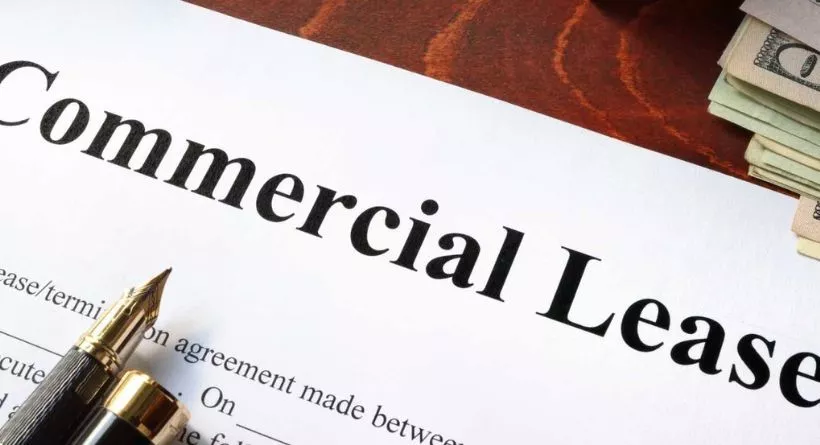Has the daunting prospect of leasing commercial real estate left you feeling overwhelmed and unsure where to start? We understand. The journey into the world of commercial real estate can be riddled with complex jargon, seemingly infinite options, and perplexing legalities. But don’t worry. We’re here to guide you through this intricate process and promise to provide you with a comprehensive solution.
Our goal with this blog post is to equip you with the knowledge and tools necessary to navigate commercial real estate leasing with confidence. We’ll shed light on the potential pitfalls, simplify complex concepts, and guide you through the various stages of securing a lease. By the end, we hope to transform your confusion into clarity and your anxiety into anticipation.
It’s time to address the elephant in the room – the immense challenge that is finding the right commercial real estate to lease. With our ultimate guide, you’ll not only learn how to spot a good deal but also how to negotiate terms that align with your business goals. So, let’s dive into the world of commercial real estate leasing and make it work in your favor!
Also Read: Detailed guide on Xfinity Flex
Understanding Commercial Real Estate Leasing
What is Commercial Real Estate?
Commercial real estate, at its most basic, refers to any property used for business purposes. It’s where commerce takes place. This could be anything from a small, local bakery to a sprawling corporate office park. Commercial real estate encompasses a wide range of business activities, from retail shops to industrial factories.
Types of Commercial Real Estate
There are several types of commercial real estate. These include office spaces, retail locations, industrial sites, and multi-family housing buildings. Each type has its specific characteristics, usage, and tenant types. For instance, a retail location could be a standalone store or part of a shopping mall. In contrast, an industrial site could be a warehouse or manufacturing plant. Understanding these types is key to finding the right property for your business.
Why is Leasing Commercial Real Estate Advantageous?
Leasing commercial real estate offers several benefits. It reduces upfront costs, provides flexibility, and opens up prime locations. When you lease, you’re not tied up with hefty mortgage payments. This leaves more cash for other business aspects. Leasing also allows you to adapt quickly to business changes. Need more space? You can move. Business not so good? You can downsize. Plus, leasing often puts premium locations within reach, which might not be affordable otherwise.
Steps to Lease Commercial Real Estate
Determining Your Needs
Start by identifying your business needs. Consider space requirements, location preferences, and budget constraints. What type of space does your business need? How much square footage? What location is best for your customers and employees? And of course, what can you afford? This step sets the stage for your property search.
Searching for the Right Property
Once you’ve defined your needs, it’s time to find the right property. This involves researching available properties and shortlisting ones that match your criteria. Consider working with a commercial real estate broker for this step. They have access to listings and insights that may not be readily available to you.
Evaluating the Property and Lease Terms
After you’ve shortlisted properties, evaluate each one carefully. Look at the physical condition, location, and suitability for your business. But don’t stop there. Scrutinize lease terms as well. Understand what you’re responsible for and what the landlord handles. Terms like rent escalation, lease duration, and renewal options are critical.
Negotiating a Commercial Real Estate Lease

Negotiating a lease can be tricky. It’s not just about the rent. Other factors like lease term, improvements, and exit clauses matter. This is where a good real estate lawyer or broker can help. They can negotiate terms that favor your business and protect your interests.
Finalizing the Lease
Once you’re satisfied with the lease terms, it’s time to sign the lease. But before you do, review everything one more time. Make sure you understand every clause in the agreement. Once you sign, it becomes legally binding. Leasing commercial real estate is a big commitment. So, ensure you’re making an informed decision.
Also Read: Global Bionic Devices Market will Grow and Reach US$ 8.68 Billion by 2027 | Renub Research
Tips to Successfully Lease Commercial Real Estate
Importance of Legal Counsel
In commercial real estate leasing, it’s essential to have legal counsel. Attorneys can spot potential pitfalls and clarify complex terms. They ensure that you’re not signing an agreement that could harm your business. Think of them as your safety net in this high-stakes trapeze act.
Understanding Lease Types
You also need to understand lease types. These include net leases, gross leases, and modified gross leases. Each has different implications for costs like utilities, maintenance, and property taxes. By understanding these types, you can avoid unpleasant surprises down the line. It’s like knowing the rules of the road before you start driving.
The Role of a Commercial Real Estate Broker
A commercial real estate broker can be your best ally. They can save you time, provide market insights, and negotiate better terms. Their knowledge and connections can open doors that might otherwise remain closed. Remember, in the world of commercial real estate, a good broker is like a seasoned guide in unfamiliar terrain.
Common Pitfalls in Commercial Real Estate Leasing
Not Understanding the Terms of the Lease
One common pitfall is not understanding lease terms. This can lead to unexpected costs and legal issues. Think of your lease as a roadmap. If you don’t understand it, you could end up lost.
Not Considering Future Needs

Another common mistake is not considering future needs. Businesses evolve, and so do their space requirements. Your lease should have the flexibility to accommodate growth and unexpected changes. Otherwise, you might find yourself stuck in a space that no longer suits your needs.
Overlooking Location-Specific Factors
Finally, overlooking location-specific factors can lead to problems. These include local zoning laws, accessibility, and customer demographics. They’re like the soil in which your business grows. If the conditions aren’t right, your business might not flourish as you expect.
Navigating the complexities of commercial real estate leasing can be challenging. But with the right guidance and knowledge, you can avoid common pitfalls and secure the perfect space for your business. Always remember, the journey to success in commercial real estate starts with understanding the landscape and knowing what to look out for.
Also Read: How to Short the Leading Crypto Asset, Bitcoin: Can I Short It?
Conclusion
To sum up, leasing commercial real estate doesn’t have to be a daunting task. We’ve walked through the basics of what commercial real estate is and the different types available. We’ve outlined why leasing can be a more advantageous choice for many businesses.
We’ve also taken you through the steps to lease commercial real estate, from determining your needs, to searching for the right property, evaluating it and the lease terms, negotiating, and finally signing the lease.
To ensure a smooth leasing journey, we emphasized the importance of legal counsel, understanding different lease types, and the role of a commercial real estate broker. We also highlighted common pitfalls to avoid, such as not understanding the lease terms, not considering future needs, and overlooking location-specific factors.
Remember, the path to successful commercial real estate leasing lies in knowledge and preparation. You are now armed with essential insights and tips to navigate your leasing journey. Forge ahead with confidence, knowing that the perfect space for your business is within reach!

